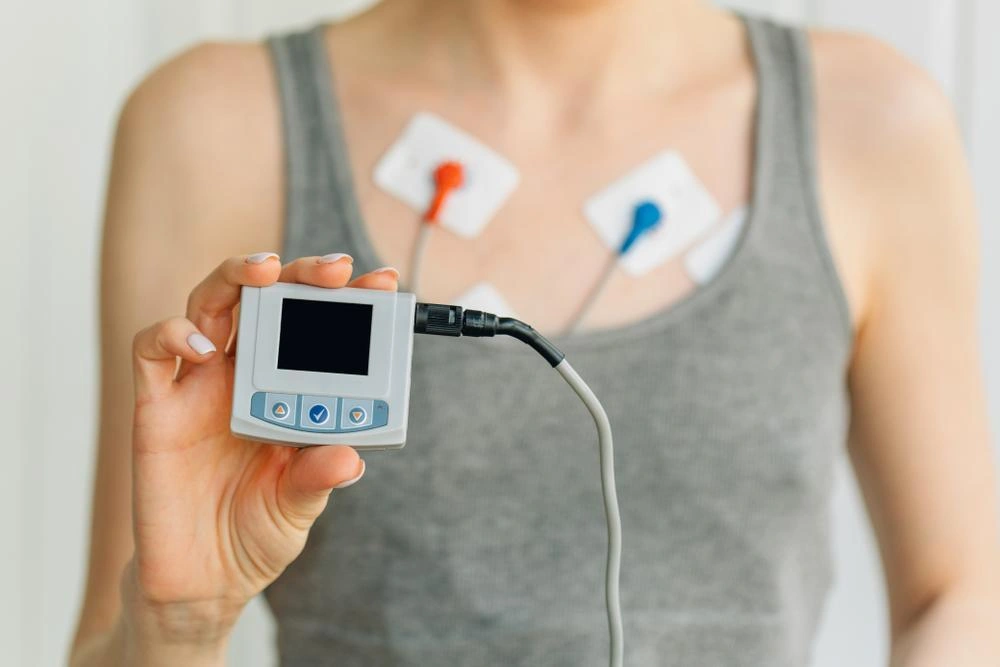EKG tests play an important role in monitoring your heart health. But as effective as they can be in spotting unusual rhythms and other heart-related issues, they provide only a brief snapshot of your heart’s activities. They don’t show how your heart responds during your daily routines.
Phoenix Heart, PLLC, a leading cardiology practice, uses an ambulatory device called a Holter monitor to record and evaluate your heart’s activity over a period of time — typically a day or two.
Take a moment as our team provides an overview of Holter monitors, including how they’re used in our practice, which has locations in Glendale, Avondale, Scottsdale, Anthem, Laveen Village, Cottonwood, and Black Canyon City, Arizona.
Quick facts about Holter monitors
A Holter monitor achieves the same goal as a traditional EKG (or ECG) machine: It monitors your heart’s activity to look for changes in your heart rhythm or electrical activity.
However, unlike a traditional EKG, which uses a large machine and long wires to collect your heart’s electrical information, a Holter monitor is a small, wearable device that goes with you throughout your day.
Like an in-office EKG, the Holter monitor uses electrodes attached to your skin to capture this heart activity. Because you wear it for 24-48 hours, the Holter monitor provides a far more detailed and comprehensive account of your heart’s activity and its responses to stressors.
In most cases, we ask you to keep a brief diary recording your activities, so we can match those activities to your heart’s responses. You should also record any unusual symptoms, along with what you were doing when those symptoms occurred.
After the 24-48 hours of wear, you return the monitor to our office and the data is extracted so we can evaluate it. The monitor itself is designed to be lightweight and comfortable, and it’s also completely noninvasive and entirely painless.
What Holter monitors can tell us
Our team typically recommends Holter monitors for patients who have specific conditions or issues that require longer monitoring.
Heart rhythm abnormalities
An in-office EKG lasts just a few moments and gives a general view of your heart’s electrical activity. But if you have an arrhythmia, it might not be continual or even common, so it’s unlikely to occur during a regular EKG.
If we suspect you have an irregular heartbeat, we can use a Holter monitor to detect abnormal rhythms over a longer period, providing us with important information to make a diagnosis.
Heart-related symptoms
Holter monitors are also used to evaluate symptoms related to heart issues, like dizziness or lightheadedness, shortness of breath, palpitations, or fainting.
By recording your activities, we can match your symptoms to your heart’s activity, helping us determine if your heart is causing your symptoms or if you need to be evaluated for another condition.
Post-heart attack monitoring
If you’ve had a heart attack, a Holter monitor can track your heart activity after you leave the hospital. We also use Holter monitors to evaluate patients who have had some types of heart surgery.
Evaluating treatment
If you’re taking medication or you’re having other treatment for a heart rhythm disorder, we can use a Holter monitor to evaluate the effectiveness of your treatment. We can also use the information from your monitor to determine when changes to your treatment need to be made.
Committed to your healthy heart
Holter monitors play an important role in evaluating heart-related conditions and monitoring their treatment. If you’re having symptoms that need to be evaluated, book an appointment online or over the phone with the team at Phoenix Heart, PLLC, today.

